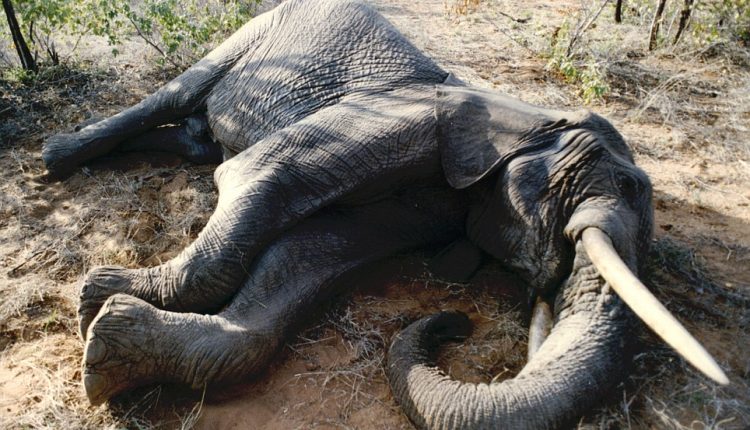35 African elephants mysteriously perished between the end of August and November 2020 in the northwestern region of Zimbabwe.
Surprisingly, eleven members of this large herd succumbed within a single day.
The enigma behind the sudden mass mortality of African elephants has been deciphered at last, according to a recent study, these incidents could become more frequent due to the climate crisis conditions.
Chris Foggin, a veterinarian at Victoria Falls Wildlife Trust in Zimbabwe and a co-author of the study, expressed his bewilderment over the sudden deaths of the elephants.
He noted, “The fact that so many animals died within such a short time frame, in proximity but not right next to each other, is one of the most puzzling aspects of this entire situation.
“The occurrence of such many deaths in this short period is quite unprecedented, especially in this part of the world,” he added.
Earlier in the same year, approximately 350 elephants in the neighboring northern region of Botswana also experienced sudden deaths over a span of three months.
However, the mystery was eventually solved.
A study, based on samples taken from 15 of the deceased elephants in Zimbabwe, revealed that a bacterial infection was the cause of the elephants’ deaths.
The study, published in the journal Nature Communications on October 25, revealed that the elephants were infected by a relatively unknown bacterium called Bisgaard taxon 45.
This caused septicemia, also known as blood poisoning.
These tragic events occurred during the dry season when food and water supplies were scarce.
This situation forced elephants to travel longer distances in search of water and food.
The researchers indicated that factors such as heat, drought, and high population density in the region likely contributed to the outbreak.
Moreover, they warned that the extreme conditions, which are predicted to become more frequent with global warming, could potentially lead to an increase in elephant fatalities in the future.
Foggin also cautioned that while it’s too early to directly link these events to climate change, the likelihood of such incidents could increase in the future due to more frequent and severe droughts or changes in rainfall patterns leading to harsher dry seasons.
He expresses concern that if these harsh conditions continue, we may see more of these tragic mortality events.


